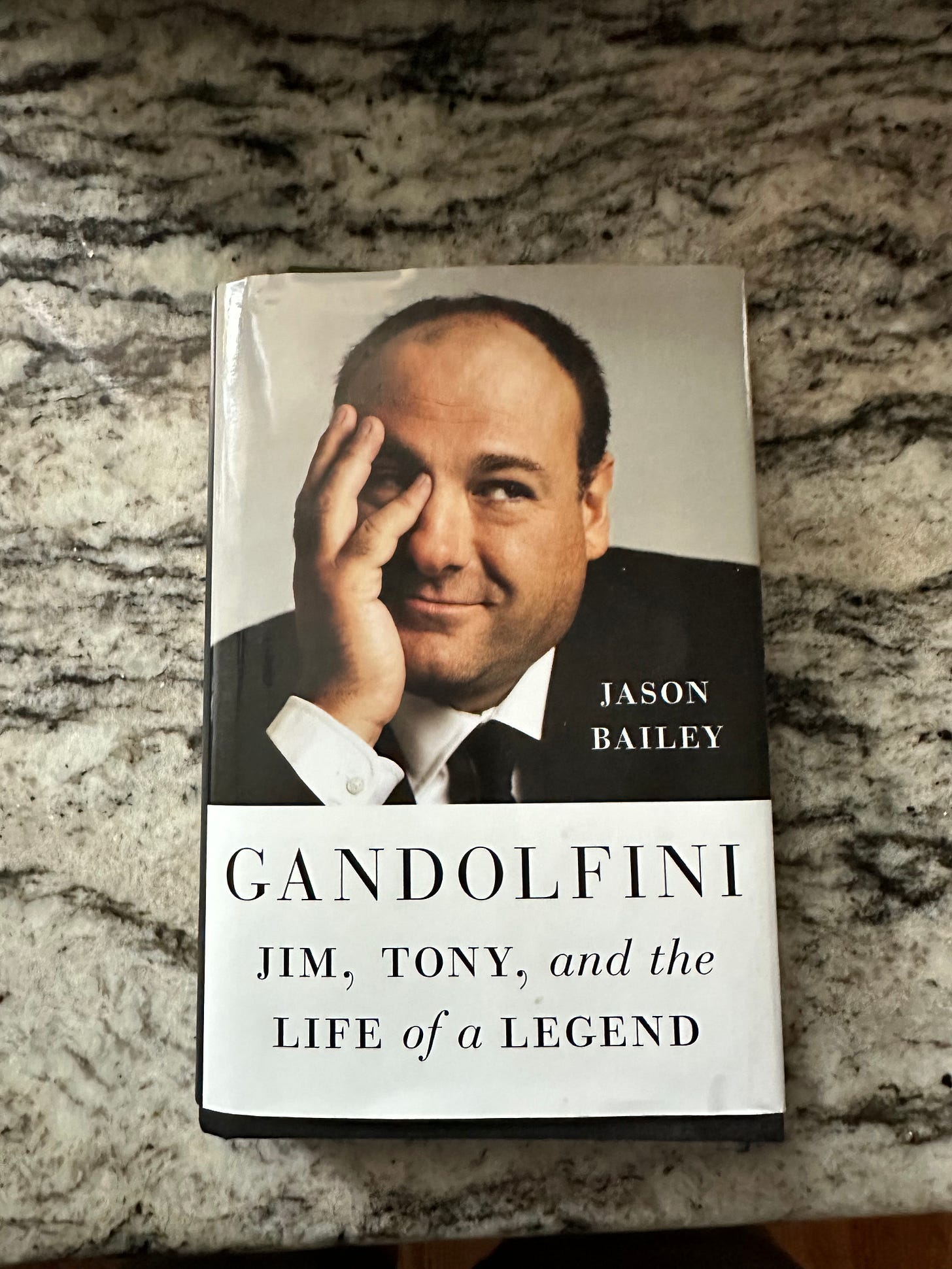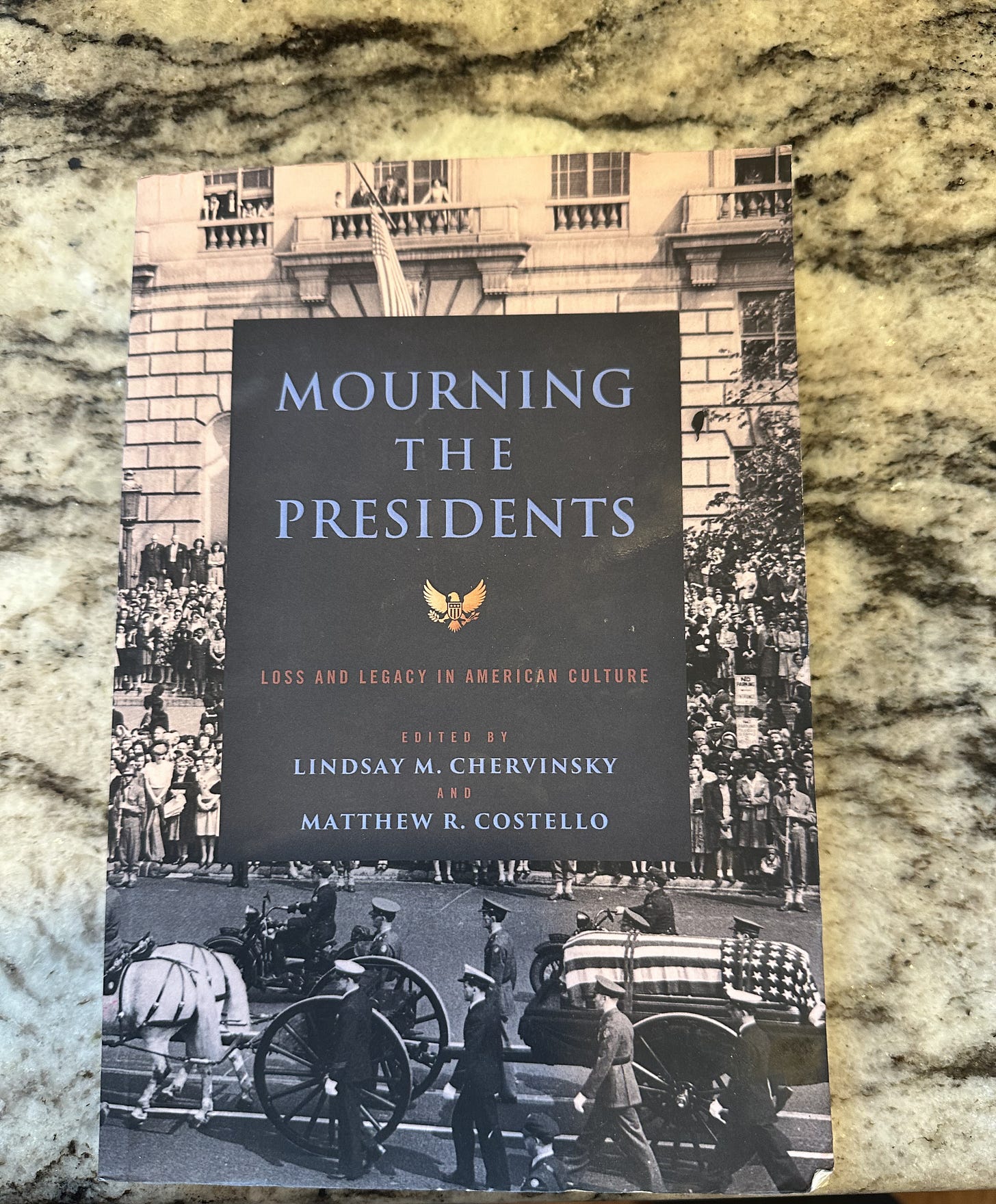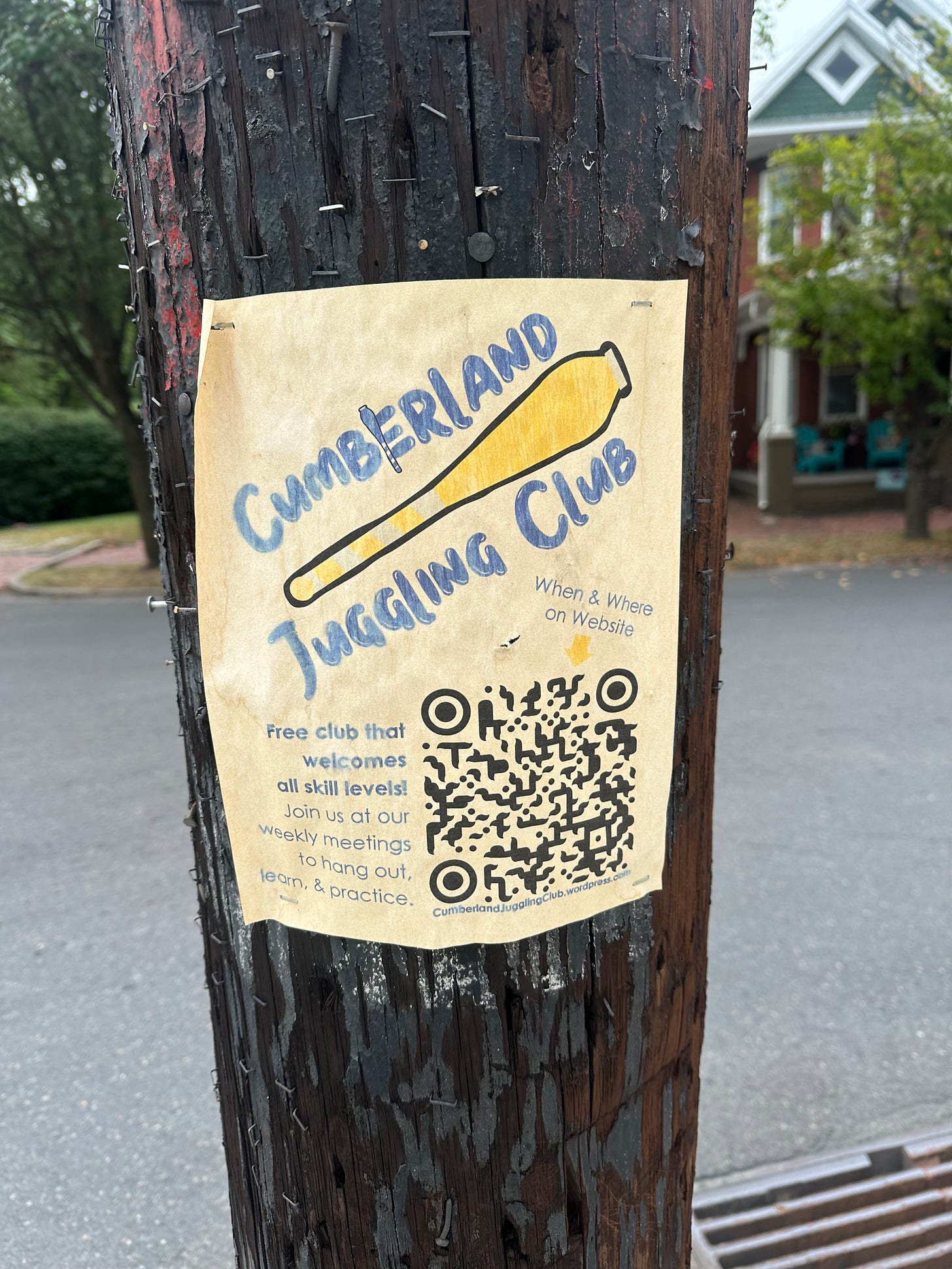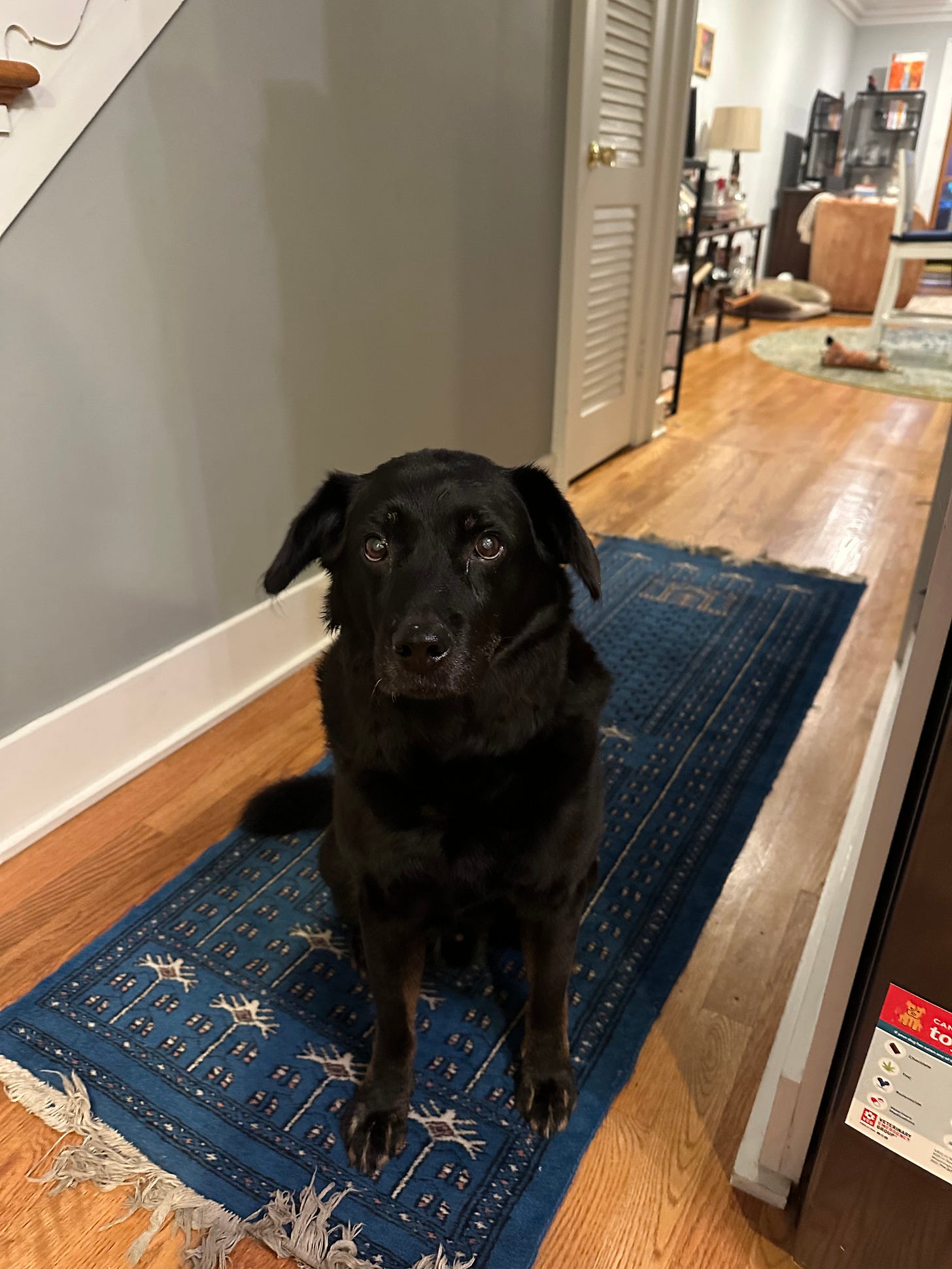Debatable
The Maundy Monday Newsletter - This Week in History September 22 - 28.
I presume you have followed the news over the last two weeks and the national conversation around free speech, debating, and faith. Usually, I’d be all about a long-form Even More Okay essay, but frankly, I’m exhausted, and there isn’t anything interesting I could add.
But history does present us with a topical anniversary—the first televised presidential debate, between Richard M. Nixon and John F. Kennedy, which took place this week, September 26, 1960.
Television is a part of our daily lives in the 21st century, and we are used to watching presidential candidates try to one-up each other on the debate stage. However, this wasn’t a feature of presidential elections until 1960. This debate launched us into a stratosphere of new expectations.
If you don’t know the specifics of the Nixon/Kennedy debate, here’s a quick summary: Nixon was sick, refused makeup, and looked awful. Kennedy was tan, healthy, and looked younger. People watching the debate on television thought Kennedy did better, while people who listened to it on the radio favored Nixon. If you want to read how I did during an election debate back in college, I shared it last year when ranking the 1960 election.
Beyond the surface of looks, I can’t share details of what the two men debated. In fact, I don’t think I have ever read or heard of any issue that night, and that should tell you something about how effective “debating” really is. But 70 million Americans tuned in, and presidential debates are forever a spectator sport.
From a minimal view of young political commentators in the social media world today, “debating” appears to be something they all want to do. The times I have unfortunately given over my attention and watched, I have usually cringed. I don’t think people would be interested in watching balanced, empathetic, reasonable people debate how to increase housing and make it affordable. Instead, we watch people trying to outsmart others when it comes to which bathroom people use and whether or not you still think the 2020 election was stolen.
Good gravy. Anonymous gave me a book on the Lincoln/Douglas debates (those were debates for the Senate) that I need to start reading to experience what a good debate should look like.
Okay, let's highlight what else happened this week. As a reminder, these events celebrate their anniversary, ending in 5 or 0. Here's what I got:
1. Ethan Allen was captured by the British on September 25, 1775. Allen was an American patriot who founded Vermont, not the upscale furniture empire. He led a small militia that called themselves the Green Mountain Boys, and they defeated the British at Fort Ticonderoga in New York just four months earlier. Allen tried to take Montreal from the British as well, but he was beaten and grabbed in the Battle of Longue-Pointe. In 1936, two guys bought a bankrupt furniture factory in Vermont and named it after him.
2. Daniel Boone died on September 26, 1820. The frontiersman was born in 1734 and is the poster child of America’s westward expansion. This guy’s story is so awesome that people can’t tell what is real and what is folklore, like the story about when he was a kid and shot a panther in the heart as it leapt to eat him. He explored and settled Kentucky, which he got to through the Cumberland Gap (more on that at the end). He died at his son’s home in Missouri at age 85.
3. The US Congress abolished the gold dollar and three-dollar coins on September 26, 1890. The United States Mint issued the gold dollar coin in 1849 and the three-dollar coin in 1854. Both were engraved by James B. Longacre, who apprenticed with an engraving firm as a kid. Both coins were small and confusing, and people kept losing or hoarding them, so they weren’t in circulation, leading Congress to abolish them both. I would love to have a three-dollar coin.
Since the Survey I sent out a while back, I’ve been thinking about how and what I publish. I won’t be doing any more Words, Words, Words, as you know it. There’s a longer story to that for strategic reasons, but that’s for another time.
But here are a couple of books I’m reading (or just finished). I’d love to know what's on your list that may interest me!
Here’s what I just finished for fun: Gandolfini: Jim, Tony, and the Life of Legend. Written by Jason Bailey, it chronicles the life of iconic New Jersey actor James Gandolfini, from his struggles as a new actor fresh out of college to his rise as a renowned star of his generation, to his tragic end in 2013. Told through interviews and research of media accounts, Bailey weaves a story of a complicated man whose gift to the world was playing complicated yet entertaining characters.
I am a huge fan of The Sopranos, and I have watched the series twice, both times after it ended in 2007. The book takes me back to a time when I wasn’t into television much, and it wasn’t until a string of work sabbaticals—the last one of which was during the COVID-19 pandemic—that I found myself returning to binge-watching. Clips of The Sopranos are a recurring theme on my Instagram reel.
But Tony Soprano is a character any actor would probably kill to play, yet the role was so heavy for the actor who actually played it. This is a good read if you are looking to change your reading diet.
Here’s what I’m reading to get smarter: Mourning the Presidents: Loss and Legacy in American Culture
I picked this book up about a year ago, and it’s a collection of essays edited by Lindsay M. Chervinsky (Substack Link) and Matthew R. Costello (Bio Link) on how, as a country, we mourned presidents after they died. Whether they passed away in office due to health or assassination, or many years later, it’s been a fascinating and educational read. I just finished reading about Herbert Hoover and his memorial in 1964. He had three of them – New York, Washington, DC, and Iowa, where he was laid to rest. Strongly encourage you to grab this when you have the chance. Impress your friends immediately with presidential memorial information in case this situation is imminent.
I’m hoping to deliver an essay this week. In honor of the end of the government fiscal year, I’ll try to focus on Congress and its history of trying to shut down the government, which feels like a constant conversation when it comes to Congress. So be on the lookout for that.
One last thing: Anonymous and I celebrated our third wedding anniversary this week in Cumberland, Maryland (the Gap where our guy Boone went through). We had dinner on a train and then a bike ride on those same tracks. It was wild. Speaking of wild:
This advertisement was in the neighborhood where we stayed. It put a smile on my face. Being married to Anonymous also puts a big smile on my face. It was a fun 24 hours.
If you enjoyed this essay and the Maundy Monday Newsletter series, please click the❤️ to help it stand out. I’d also appreciate it if you would subscribe - free or paid – to support my work.
You can also help reach new readers by sharing it on social media.
Thanks for supporting Okay History! I appreciate your attention. You have a lot to juggle, and that’s not up for debate. Let me know if you like the book additions!
Okay,
Chris






